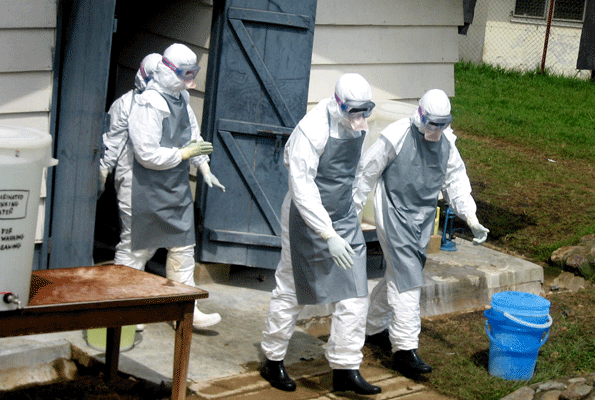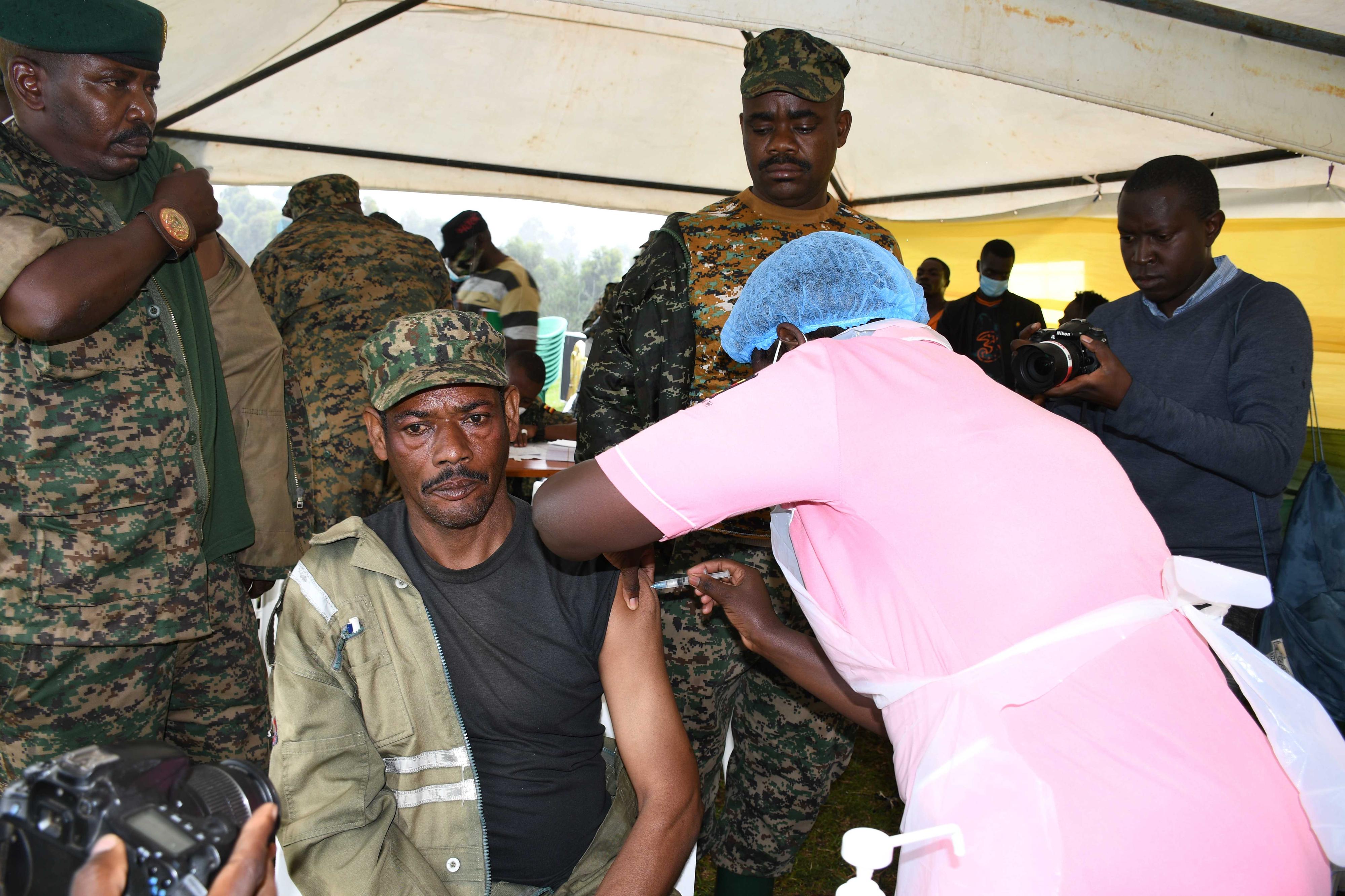Ebola outbreak: Transporters tighten checks and masking for passengers

Passengers wash hands before boarding taxis at the New Taxi Park in Kampala in a bid to curb the spread of Covid-19, in March 2020. PHOTO | MICHAEL KAKUMIRIZI
What you need to know:
- A number of transporters interviewed for this article said they had either introduced, or were due to introduce preventive measures, among them provision of JIK for cleaning inside the bus and handles.
Transporters yesterday raised the red flag, and urged travellers to be vigilant, hours after the government confirmed the outbreak of Ebola Virus Disease (EVD) in the country.
Mr Tom Best Aliinde, the public relations manager of Link Bus Services, which plies the western route via Mubende, which has a confirmed Ebola case, worried that their employees, who interface with hundreds of clients daily, are at a risk.
“We have already put up a number of preventive measures for all our staff, passengers and the general public. As usual, we are committed to working with the government and other stakeholders to stop the spread of Ebola,” he said.
Ebola is a viral disease transmitted mainly through contact with fluids or blood of an infected person, according to the World Health Organisation (WHO).
A number of transporters interviewed for this article said they had either introduced, or were due to introduce preventive measures, among them provision of JIK for cleaning inside the bus and handles, as well as providing water and soap for passengers to wash hands.
Some bus owners were liaising with health officials for posters and overall messaging on preventing Ebola spread, replicating precautions to stem the transmission of Covid-19.
Across segments of public transport, including at terminals, and hospitals, proprietors reintroduced or tightened the use of hand sanitisers and gloves – measures that had flailed with reducing pandemic threat.
“We are also going to provide personal protective equipment such as gloves to our staff to make them ready for any eventualities,” Link Bus Service’s Aliinde said.
Mr Francis Mutasi, a special hire driver, said they are now telling their clients to wear masks and sanitiser before boarding.
“For me, I have bought sanitiser and a box of masks for my clients to ensure they are all safe while in my vehicle,” he said.
Mr James Asiimwe, a driver on Fort Portal-Mbarara route, said he was not aware of Ebola outbreak in Uganda but will, effective today, start demanding his clients to wear masks before entering the car.
This is a variation from the public health and spacing advisory over Covid-19 where taxis and buses were instructed to operate at half capacity to prevent person-to-person body contact.
Mr Sam Asaba, a taxi driver on the Masindi-Fort Portal route, yesterday said they had deployed a temperature gun to find out passengers presenting with fever.
“The measures we used to contain coronavirus spread are the same we shall use to fight Ebola because we shall not allow a taxi to carry more than the recommended number of passengers, we request the public to comply with us,” he said.
Mr Derick Kasekende, a taxi driver plying the Kagadi-Mubende route, said most passengers were scared following the announcement of the outbreak of the disease.
‘‘We all got the news [yesterday] morning, which caused general panic. Passengers are coming as usual, but we fear their number is likely to dwindle in the coming days. We want to be told what preventive measures we can put into practice while we carry on with our businesses,’’ he said.
Kikuube District
In Kikuube District, which is near Mubende where the suspected and confirmed cases have been registered, officials held an extraordinary meeting to chart ways on heightening surveillance and community sensitisation.
“… one of the resolutions of the meeting was to come up with an Ebola Virus Disease response plan. We have also begun sensitising the community to be aware of Ebola outbreak,” Ms Faridah Ngabano, the Kikuube District information officer, said.




